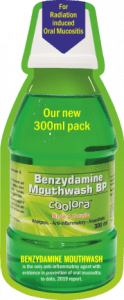Menu

Therapies used in cancer treatment can take a toll on the human body.
Chemotherapy and radiation therapy can inflict mouth sores and affect the salivary glands and the health of teeth and gums. Cavities, broken or chipped teeth, improperly installed crowns or fillings, and gum disease can worsen during cancer treatment. During treatment, since the white blood cell counts reduce, the immune system fails to function at its full potential, causing mouth infections. Visiting a dentist before, during, and after cancer treatment is highly recommended to prevent unforeseen oral health complications.
Following are a few best oral care hygiene practices for individuals undergoing or may have undergone cancer treatment: –
1. Toothbrushing twice a day with an ultra-soft, nylon-bristled toothbrush (with regular replacement of the toothbrush) is recommended.
2. One can soften the bristles in warm water if oral hygiene procedures become discomforting or can be modified to an ultra-soft toothbrush to ensure continued mechanical oral decontamination for as long as possible during cancer treatment.
3. Toothbrushing should be supplemented by daily dental flossing done carefully to prevent tissue injury. If regular floss is challenging to use, those with uniquely designed floss holders or interdental brushes can be prescribed.
4. Apart from patients using fluoridated toothpaste, dentists can apply fluoride varnish if the patient’s ability to perform oral care is compromised or if there is an increased risk of dental caries due to reduced saliva. The American Dental Association (ADA) recommends fluoride varnish application 2–4 times per year to prevent cavities in high-risk patients.
5. When patients cannot perform daily oral hygiene due to oral pain, chlorhexidine mouthwash is the first product of choice because of its superior antiplaque and sustained antimicrobial action.
6. The patient can use an interdental brush dipped in chlorhexidine gel to clean the areas between teeth, crowns, and bridges to ensure good oral health.
7. Cancer patients undergoing radiation or chemotherapy also need to overcome the complications due to the development of oral mucositis —a common complication during cancer therapy, causing inflammation and ulcerations in the mouth. Typical symptoms include pain, burning, and redness in the mouth. Patients receiving chemotherapy develop mucositis about 7-10 days after drug administration. The ulcers and burning persist for a week or two and heal. Patients receiving radiation therapy for head and neck cancer develop mucositis typically after the first 2-3 weeks of radiation therapy, which persists throughout the remainder of treatment. The ulcers usually heal 2 – 4 weeks after the completion of radiation therapy. Oral mucositis adversely affects essential life activities, and these patients find it difficult to eat, speak, swallow, and sleep comfortably. Benzydamine hydrochloride gargle is recommended in oral mucositis because its local anti-inflammatory action helps relieve pain and inflammatory conditions of the mouth and throat. Even natural products like curcumin (turmeric) and honey have shown great promise in managing oral mucositis.
8. Dry mouth is another common complication after cancer therapy. Apart from impairing daily activities like eating and speaking, a dry mouth increases the risk of tooth cavities due to a lack of salivary protection for teeth. In such cases, hydration with saliva substitutes is helpful for the effective management of dry mouth to keep oral mucosa moist and lubricated. Saliva substitutes reduce surface abrasion and help patients eat, sleep, and speak comfortably.
Following these practices should help cancer patients maintain optimum oral hygiene and good oral health during and after cancer treatment. However, considering that every individual is different, one should see a dentist for regular follow-ups.


| PRODUCTS | QTY | PRICE | VALUE in INR |
|---|
| PRODUCTS | QTY | PRICE | VALUE in INR |
|---|